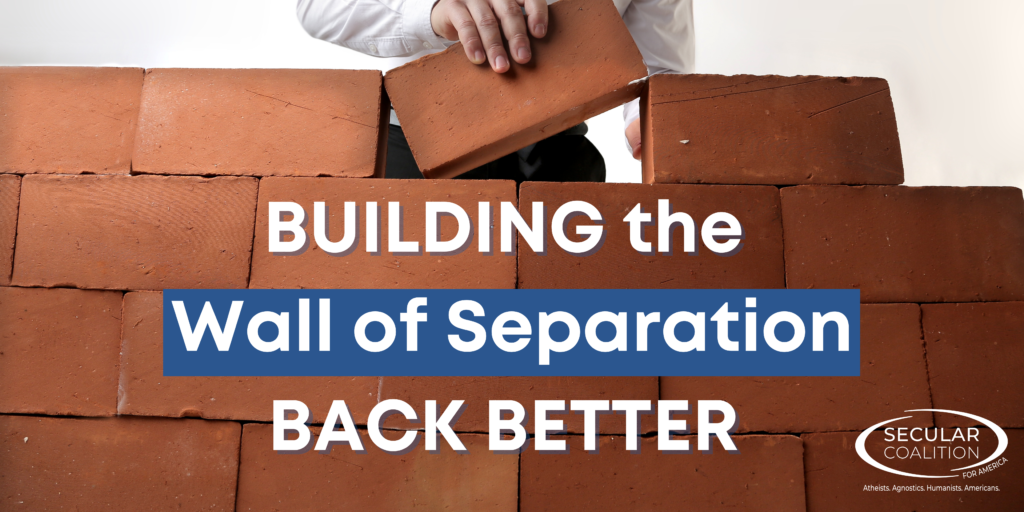"On the Hill” generally refers to Congress but the Supreme Court is on that same hill, right across the street from the Capitol so I’m watching what happens there too. This week a lot happened in the separation of religion and government. The Court held oral arguments on a case involving state support for religious schools in Maine. In rural areas where there is no public school system, families can pick what nearby schools their children will attend. Two families sued the State because the overtly religious schools they wanted their children to attend have been excluded from the list of eligible public and private schools. Details here.
Fundamentally the case pits the First Amendment’s establishment clause (Maine taxpayer money should not go to religious schools) against its free exercise clause (parents aren’t allowed to choose to send their children to religious schools). The Supreme Court ruled last year that Montana violated the free exercise clause by excluding religious schools from a tuition-assistance program. While the Montana ruling determined it was unconstitutional for a state to exclude religious schools from public funding programs simply because of their religious orientation, the Maine case will determine whether it is also unconstitutional to exclude institutions because the state funding would go directly toward religious activity and instruction.
When someone says something like, “If we do that, we will be heading down a slippery slope, and where would it end?” the answer is usually, “It would end SOMEWHERE.” On this issue it needs to end in Montana, with state tuition money going to religious schools, but not to fund those schools’ religious activities. The Court should draw the line between Montana and Maine.
This case involves a very small number of students but the Supreme Court could issue a very broad ruling on government support for religious schools next spring. In the oral arguments, six justices seemed sympathetic to the parents. If this concerns you, take it as a reminder that elections matter, Presidents matter, and the majority in the Senate matters, where Supreme Court nominations are voted on or placed in a drawer. Get involved in your local party organization. There will be plenty for volunteers to do in the upcoming election year.
Right now, you could go to our latest Action Alert and contact your representatives about federal funding for faith-based child care centers. The House and Senate have each been writing their versions of Build Back Better, a bill that would provide federal funding in several important areas; healthcare, education, housing, climate change, and childcare among others. The House has passed its bill. The Senate is trying to complete its version this month.
An important issue has come up in the Senate concerning money for child care programs. Senate (and House) Democrats want to make child care available in areas of the country where it is scarce, and to make it more affordable everywhere. Many childcare programs are currently provided by faith-based organizations. Because childcare money goes through the parents to these faith-based providers instead of directly from the federal government, they are not subject to federal antidiscrimination regulations. The House bill changes that, so these faith-based providers would not be able to discriminate against employees or families based on their religion or lack thereof, or other protected characteristics.
Senators are now debating whether to do the same thing in their bill. Please help us "build back better" by sending our Action Alert to your Senators asking them to go along with the House position on this issue. Taxpayer money should never be used to finance programs that can discriminate.
Another way to help build back the wall of separation better than ever before is by becoming a monthly donor to the Secular Coalition for America. Your contributions go directly to our lobbying work on your behalf.
Your advocate on the Hill,
Scott MacConomy
Director of Policy and Government Affairs
Secular Coalition for America



